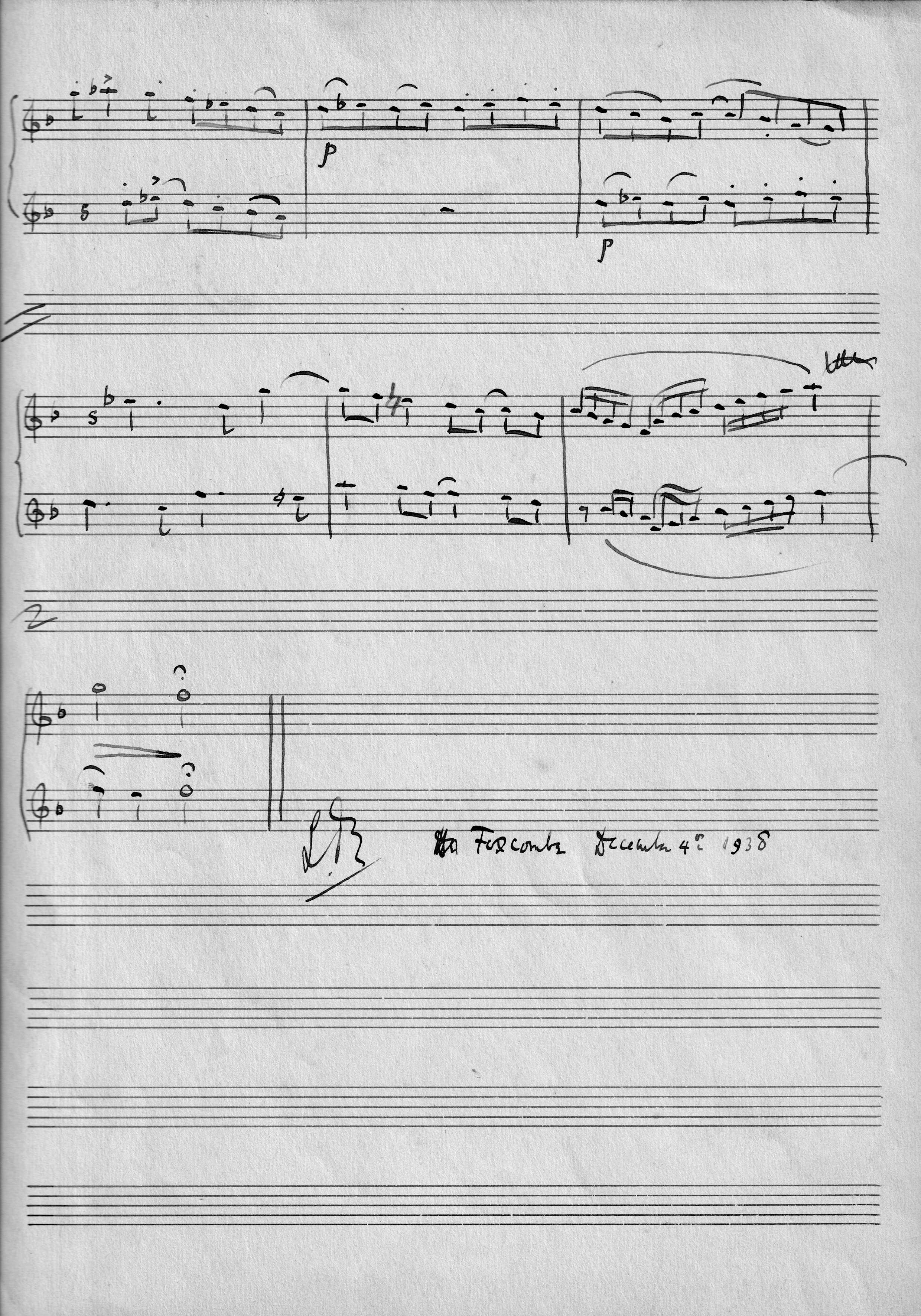Berkeley’s ‘Moderato’ for two recorders (1938)
Tony Scotland writes about the newly-discovered Moderato for two recorders
A short piece for two recorders which Lennox Berkeley wrote just before the war has come to light in a sheet-music box engraved ‘Berkeley Castle’, in the music room of the house I share with Julian Berkeley in Hampshire. Written in ink in Berkeley’s own hand, on two sides of a single sheet of twelve-stave manuscript paper, it’s entitled Moderato and signed ‘LB Foxcombe December 4th 1938’.

Foxcombe was the name of the cottage on Boar’s Hill, Oxford, where Berkeley’s godmother, Sybil Jackson, lived. She was the step-daughter of Lennox’s uncle, the scientist Randal, Earl of Berkeley, and had been his companion since her mother died. But when he decided to marry again in 1924 she was obliged to move from Berkeley Castle. Lord Berkeley still owned land on Boar’s Hill and built her a cottage on the north side of Ridgeway, opposite Jarn Mound. As an undergraduate at Oxford Lennox often went to visit her there, certain of a musical welcome – for Sybil Jackson was a trained singer, an accomplished pianist (with a vast repertoire of two-piano music) and a recorder player. The programme was always the same: luncheon, followed by two-piano duets or recorder music, then tea. Lennox sought special sanctuary with Sybil at Foxcombe Cottage over that first weekend in December 1938, when tensions were running high at home at the Mill in Snape, following his rejection by Benjamin Britten.
Composer and Berkeley Society member Jayson Mackie has examined the newly-discovered Moderato and typeset both it and another unpublished piece for two recorders (preserved in manuscript at the British Library): a Minuet which Berkeley probably wrote in the twenties – maybe for Sybil Jackson and himself to play at Foxcombe. Michael Berkeley has edited both these pieces, and passed them on to the Berkeley scholar, Peter Dickinson, and the recorder virtuoso, John Turner, for their further thoughts on articulation and dynamics.
Michael and Jayson believe that, when added to the Allegro for two recorders (edited by Britten, and published by Boosey & Hawkes in 1955), the two earlier pieces would be worth publishing as an attractive and useful set of duets for woodwind. In the next Journal we hope to carry more about this plan, together with an analysis by Jayson Mackie of all three of Berkeley’s pieces for two recorders.